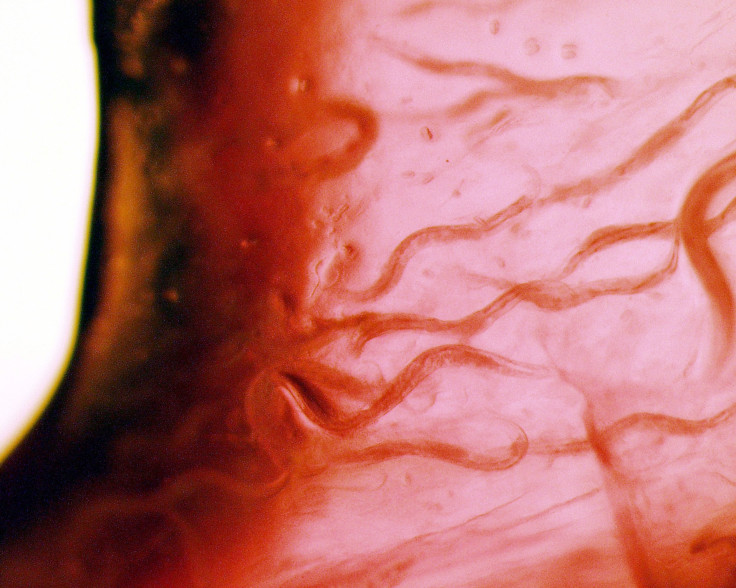Frozen Roundworms Brought Back To Life 42,000 Years Later

Two nematodes — or roundworms — returned to life after being frozen in the Arctic permafrost for 42,000 years, setting a record for the time of survival in cryogenic preservation. A team of Russian scientists working with Princeton University defrosted over 300 prehistoric worms from the Ice Age.
The team said two of the females have "showed signs of life," and are moving and eating again. The roundworms from two areas of Siberia came back to life in Petri dishes after being left for several weeks at a relatively warm 20 degrees Celsius temperature.
"We have obtained the first data demonstrating the capability of multicellular organisms for longterm cryobiosis in permafrost deposits of the Arctic," stated a report from Russian scientists from four institutions, adding the data also showed the "ability of multicellular organisms to survive long-term (tens of thousands of years) cryobiosis under conditions of natural cryoconservation."
The report, which appeared in Doklady Biological Sciences, added: “It is obvious that this ability suggests that the Pleistocene nematodes have some adaptive mechanisms that may be of scientific and practical importance for the related fields of science, such as cryomedicine, cryobiology, and astrobiology.”
One of the two worms which came alive belonged to an ancient squirrel burrow in a permafrost wall of the Duvanny Yar outcrop in the lower reaches of the Kolyma River — close to the site of Pleistocene Park. The other was found in permafrost near Alazeya River in 2015, and is around 41,700 years old.
Currently, the nematodes are the oldest living animals on the planet.
Scientists have said studying the mechanisms that allowed these two worms to survive could change many of the theories about the places where extraterrestrial life might exist.
The Russian institutions involved in the pioneering research included The Institute of Physico-Chemical and Biological Problems of Soil Science; Moscow State University; Pertsov White Sea Biological Station, part of Moscow State University; and the Higher School of Economics in Moscow.
Roundworms are known to be hardy creatures and have been revived in 39-year-old herbarium samples, but this is a surprising new discovery. According to Science Alert, the tardigrade, who are closely related to roundworms, are also well known for having a talent for surviving extreme conditions. They can repair broken DNA and produce a vitrifying material when they dry out.
© Copyright IBTimes 2024. All rights reserved.





















